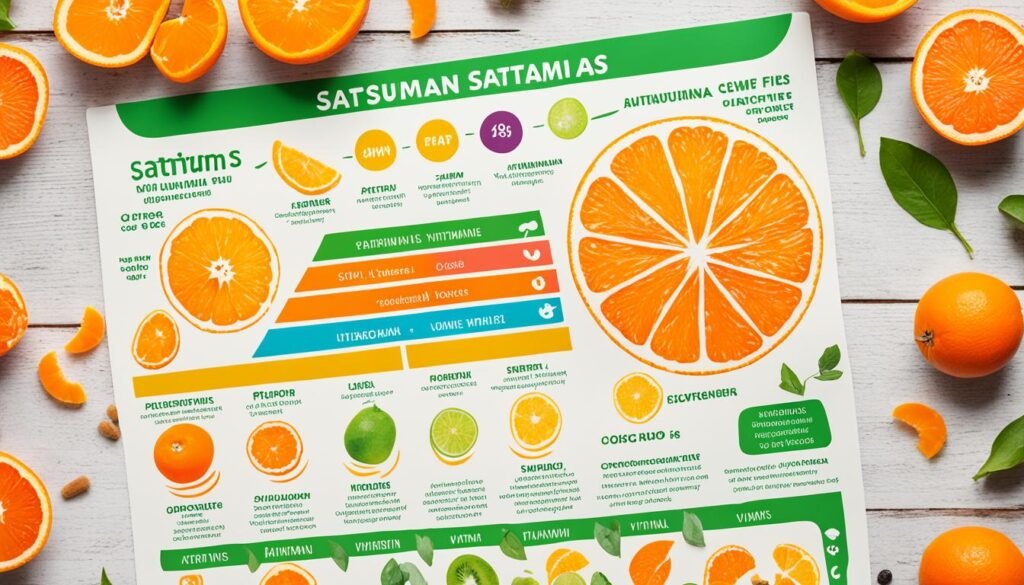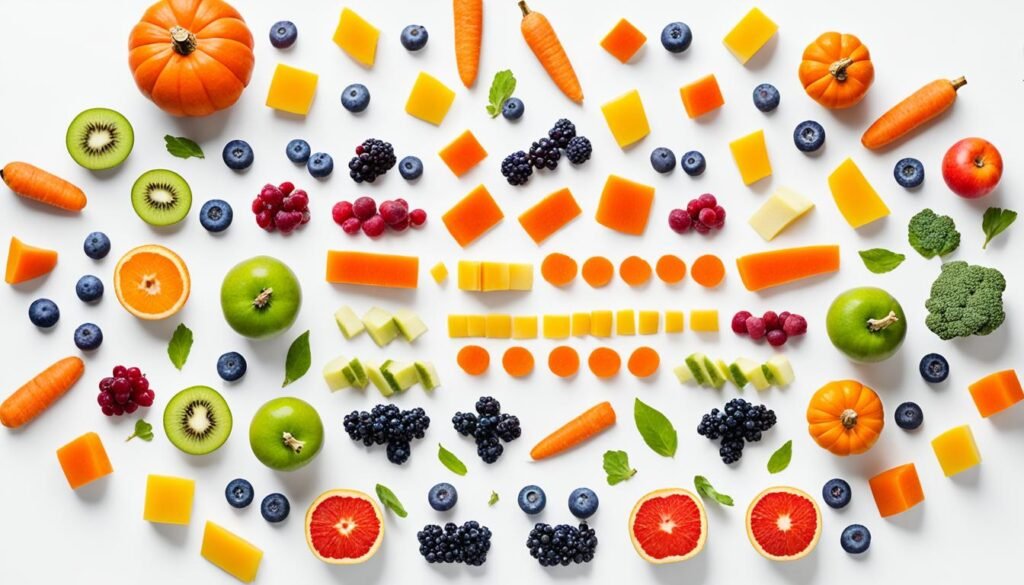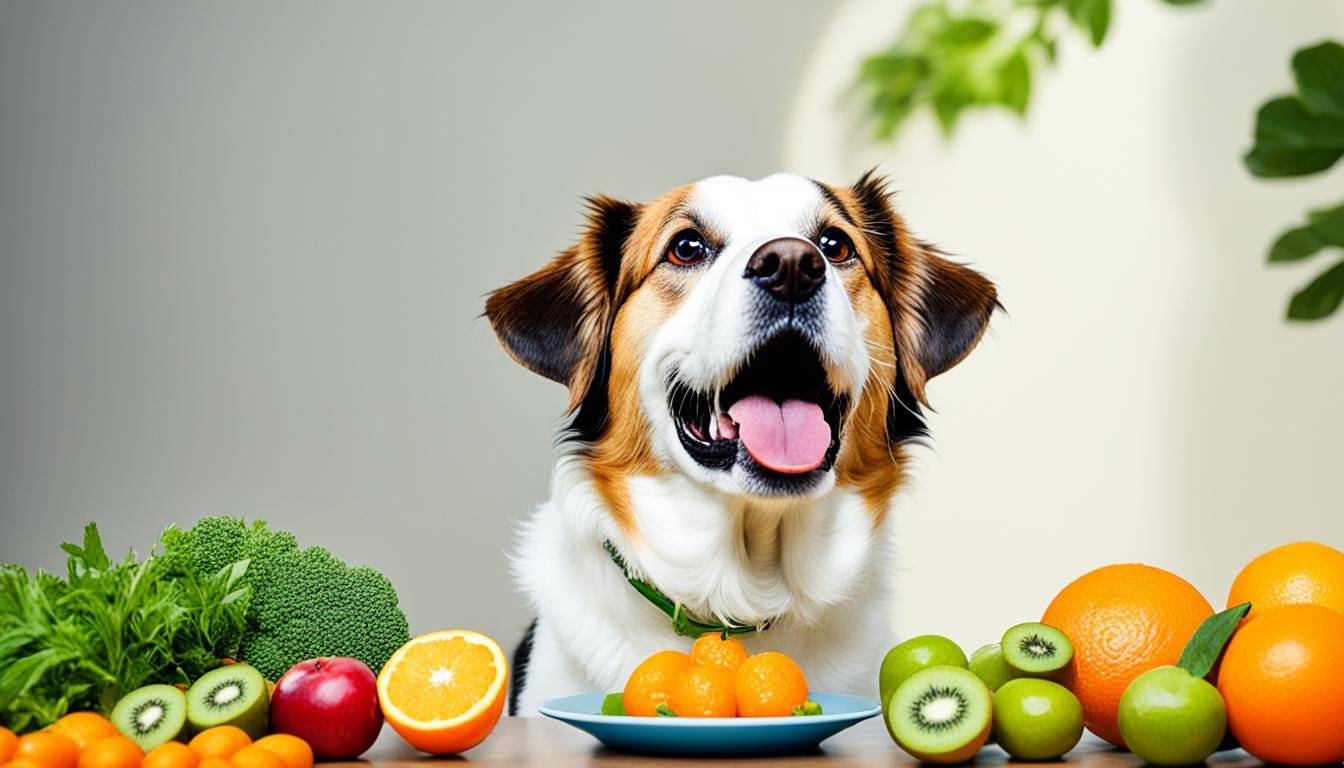Can Dogs Eat Satsumas? Safe for Your Pup?
Many pet owners wonder if it’s safe to share satsumas with their dogs. These fruits can be a nice treat away from usual dog food. But, remember not to give them too much. Small bits of satsuma can be good for dogs, but only sometimes. Make sure to peel them and take out the seeds first. Always check with your vet before giving new food to your pup.
Satsumas could be a fun, new taste for your dog if you’re careful. Make sure to throw away the peel and seeds to avoid upset tummies. Giving a few satsumas can keep your dog healthy and happy. Satsumas are a tasty, safe treat for dogs looking for something different.
Key Takeaways
- Satsumas are not toxic to dogs, but should only be served in moderation.
- Peel and seeds must be removed to prevent any risk of choking or digestive issues.
- Consultation with a veterinarian is advisable before introducing satsumas to a dog’s diet.
- Observe your dog for any signs of discomfort or allergic reactions after eating satsumas.
- Puppies and dogs with health conditions require extra caution when consuming satsumas.
- Alternative low-sugar fruits can be considered for dogs with dietary restrictions.
An Introduction to Canines and Citrus
When thinking about dogs and satsumas, remember that these fruits are not must-haves for dogs. They can be a nice treat, but they’re not needed for a dog’s daily diet. Adding satsuma pieces to a dog’s diet needs balance. We should consider their health benefits and their sugar and tangy taste. Not all dogs may like them.
Let’s look at the basics of dogs and satsumas. How do they fit as treat options for dogs? We’re exploring how citrus fruits can be a part of a dog’s treats.
Understanding Canine Diet and Fruit Consumption
Fruits like satsumas can make a dog’s diet more enjoyable. However, pet owners must remember that dogs already get what they need from their regular meals. So, fruits are just extra treats, not must-haves.
Common Questions Around Dogs and Citrus Fruits
Many dog owners wonder if their pets can eat and enjoy satsumas. Since dogs have different tastes, some might not like canine nutrition satsumas. It’s best to start slowly and watch how each dog reacts. This way, you can see what they like and how it affects their digestion.
| Consideration | Detail | Action |
|---|---|---|
| Dietary Needs | Are satsumas meeting a nutritional gap? | Evaluate the dog’s current diet |
| Health Benefits | Rich in vitamin C, fibre, & potassium | Introduce in moderation as treats |
| Dog’s Palate | Not all canines enjoy the tartness of citrus | Observe the dog’s taste preference |
| Observation | Monitor for adverse reactions | Watch for discomfort or allergies |
In the end, dogs and satsumas can go well together as treats. But, it’s important to be careful. Use moderation and keep a close watch. This ensures these treats help, not harm, their diet.
Can Dogs Eat Satsumas: The Nutritional Perspective
Looking closely at satsumas for dogs, we need to think about nutrition. Satsumas are ok for dogs if given in small amounts. It’s key to know the nutrients in satsumas and how they help your dog’s health.
Assessing the Health Benefits
Satsumas taste great and are full of good stuff. They’re packed with vitamin C, which helps a dog’s immune system. They also have a lot of fibre, good for digestion, and potassium, which keeps muscles and nerves healthy.
Key Vitamins and Minerals in Satsumas
Satsumas offer important vitamins and minerals for your dog. Here are the main ones:
| Nutrient | Benefits for Dogs | Recommended Amount |
|---|---|---|
| Vitamin C | Immune support and antioxidant | Moderate as per dog size |
| Fibre | Digestive health | Small portions as treat |
| Potassium | Heart health and muscle functions | Occasional treat in moderation |
Understanding the Sugar and Acid Content
We must also think about the sugar and acid in satsumas. Too much can be bad, especially for dogs with health issues. A small piece of satsuma now and then is ok. But don’t give them too much.
It’s essential to consider satsumas as an addition to, rather than a substitute for, a dog’s balanced diet.

The Risks of Feeding Satsumas to Dogs
Satsumas can be a special treat for dogs, but there are risks. Satsumas toxicity in dogs is a concern because of the high sugar. This is bad for dogs with diabetes or on a diet. A dog eating satsumas could get a quick rise in blood sugar. This could lead to health issues that are avoidable.
The acid in satsumas might upset some dogs’ stomachs. This can cause tummy troubles or irritation. Dog owners need to watch their pets for any upset after eating this fruit.
Satsumas might also cause physical problems. The peel and seeds could choke a dog or block their insides. So, it’s vital to peel satsumas and take out the seeds before giving them to your dog.
- Sugar content leading to elevated blood sugar levels
- Acidic nature potentially causing gastrointestinal upset
- Choking hazards associated with peels and seeds
Knowing these risks helps owners choose wisely about feeding satsumas to dogs. Always use moderation. Asking a vet can also give you advice specific to your dog’s health and diet.
Satsumas and Puppies: What You Need to Know
Can puppies eat oranges? It’s a question many ask. Adding satsumas to their diet needs careful thought. Young dogs have sensitive stomachs. So, introduce these fruits gently. Make sure to watch for any signs of upset.
Puppies might like the sweet taste of satsumas. But, they’re not as good at handling the fruit’s acid and sugar as adult dogs. If you give satsumas to puppies, do it rarely. This helps avoid upset stomachs. Here’s how to safely give satsumas to your pet:
- Always remove the peel and seeds to prevent potential choking or digestive blockages.
- Offer only a small segment as a treat, not as a regular part of their meal plan.
- Keep close observation after the puppy consumes satsumas to identify adverse reactions quickly.
- Consult with a veterinarian to ensure it aligns with their dietary recommendations for your puppy.
Oranges can sometimes be okay for puppies. But, it’s vital to keep the canine diet satsumas amount low. They should eat mostly puppy food. Here’s a guide on how much satsuma to give, based on your dog’s size:
| Puppy Size | Satsuma Portion | Frequency |
|---|---|---|
| Small breed | 1/8 of a satsuma | Once a week |
| Medium breed | 1/4 of a satsuma | Once a week |
| Large breed | 1/2 of a satsuma | Once every two weeks |
In the end, yes, puppies can eat oranges. But, adding satsumas to their diet needs careful planning. Treat them as a rare snack. Always watch how your puppy reacts to new foods.
Alternatives to Satsumas for Dogs
If your dog can’t have satsumas, there are many other treats to try. Pets that are overweight, diabetic, or have allergies can enjoy low-calorie fruits. These treats are fun for them without hurting their health.
Low-Calorie Fruit Options
Apples and strawberries are great for dogs. They have nutrients but not too much sugar or acid. Give these fruits in small amounts and prepare them right to keep your pet safe and healthy.
- Apples (cored and sliced; seeds removed)
- Strawberries (hulled and halved)
These fruits are full of vitamins and fibre and don’t have much fat. They’re good for an occasional snack. But, it’s important to add new foods to your dog’s meals slowly. This way, you can see if they have a bad reaction.
Dog-friendly Treats
Look for treats made just for dogs. These treats are balanced nutritionally and don’t have extra sugar. This helps keep your dog healthy.
| Treat Type | Benefits | Caloric Content |
|---|---|---|
| Specialised Canine Treats | Designed for dogs, supports dental health | Low to moderate |
| Lean Meats | High in protein, no added sugars | Depends on the type of meat |
| Vegetable Chews | Low in fat, good for digestion | Low |
Talk to a vet about your dog’s food needs. especially if you’re trying new treats or changing their diet. This helps make sure your choices support great dog health. It keeps satsumas as a safe snack for your dog.

How to Safely Introduce Satsumas to Your Dog’s Diet
Introducing satsumas to your dog’s meals can be easy if you’re careful. These fruits add a fun twist to regular treats. Make sure to start with a small piece to see how your pet likes it.
Guidelines for Portion Size
Start with just one piece of satsuma for your pet. Make sure it’s peeled and has no seeds. This helps to prevent stomach upset. Treats should be less than ten percent of what your dog eats daily. This is because big dogs need more food than small dogs. Stick to these rules to keep your dog healthy.
Monitoring Your Dog’s Reaction to Citrus
After giving your dog a satsuma, watch them closely. Signs like a bad tummy or not wanting to eat mean they may not like it. Note down how your dog reacts. If they’re okay, you can give satsumas now and then as a treat. But, if your dog seems sick, stop the fruit and talk to a vet right away. Following these steps helps keep your dog safe while trying new foods.






